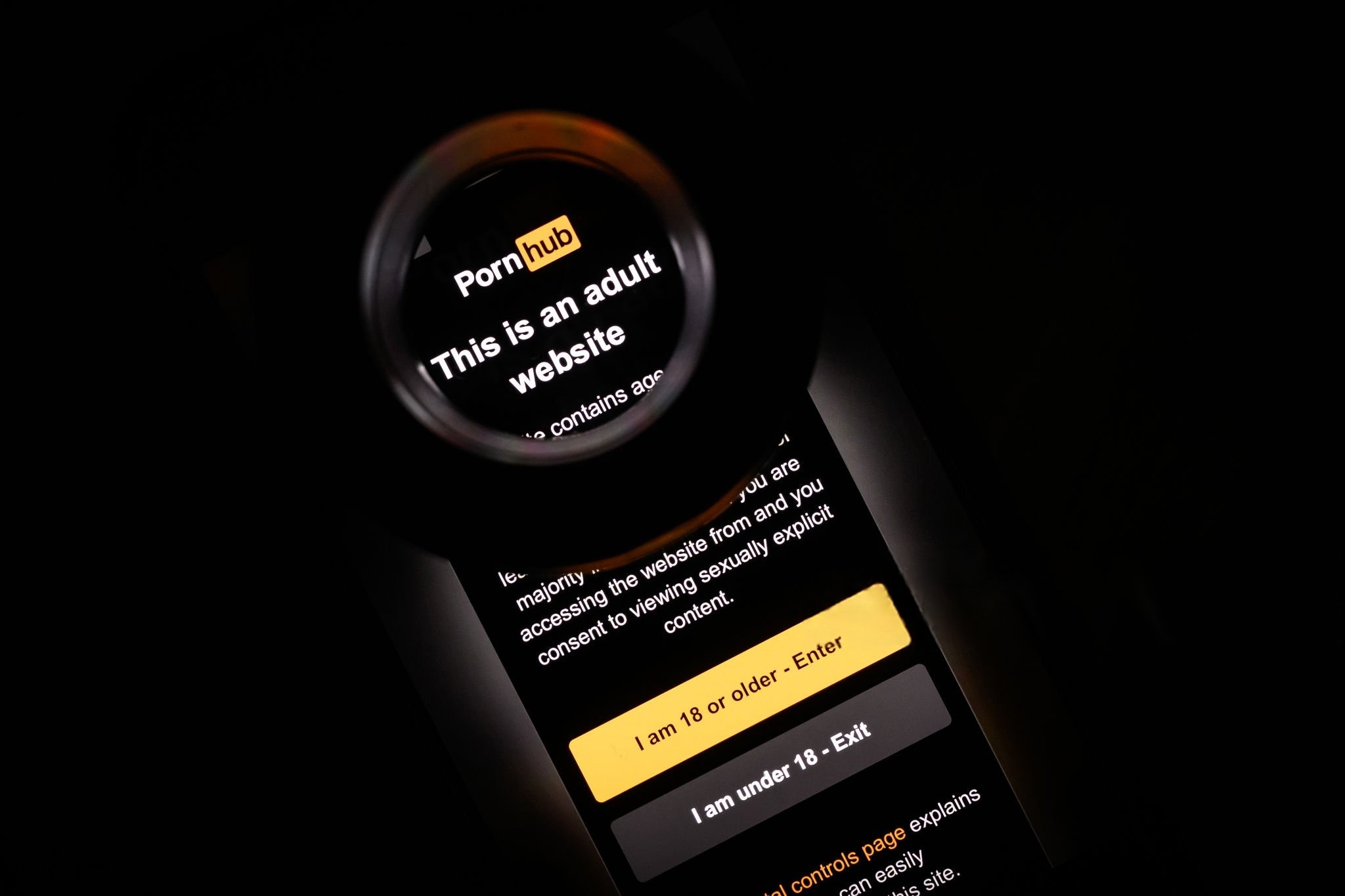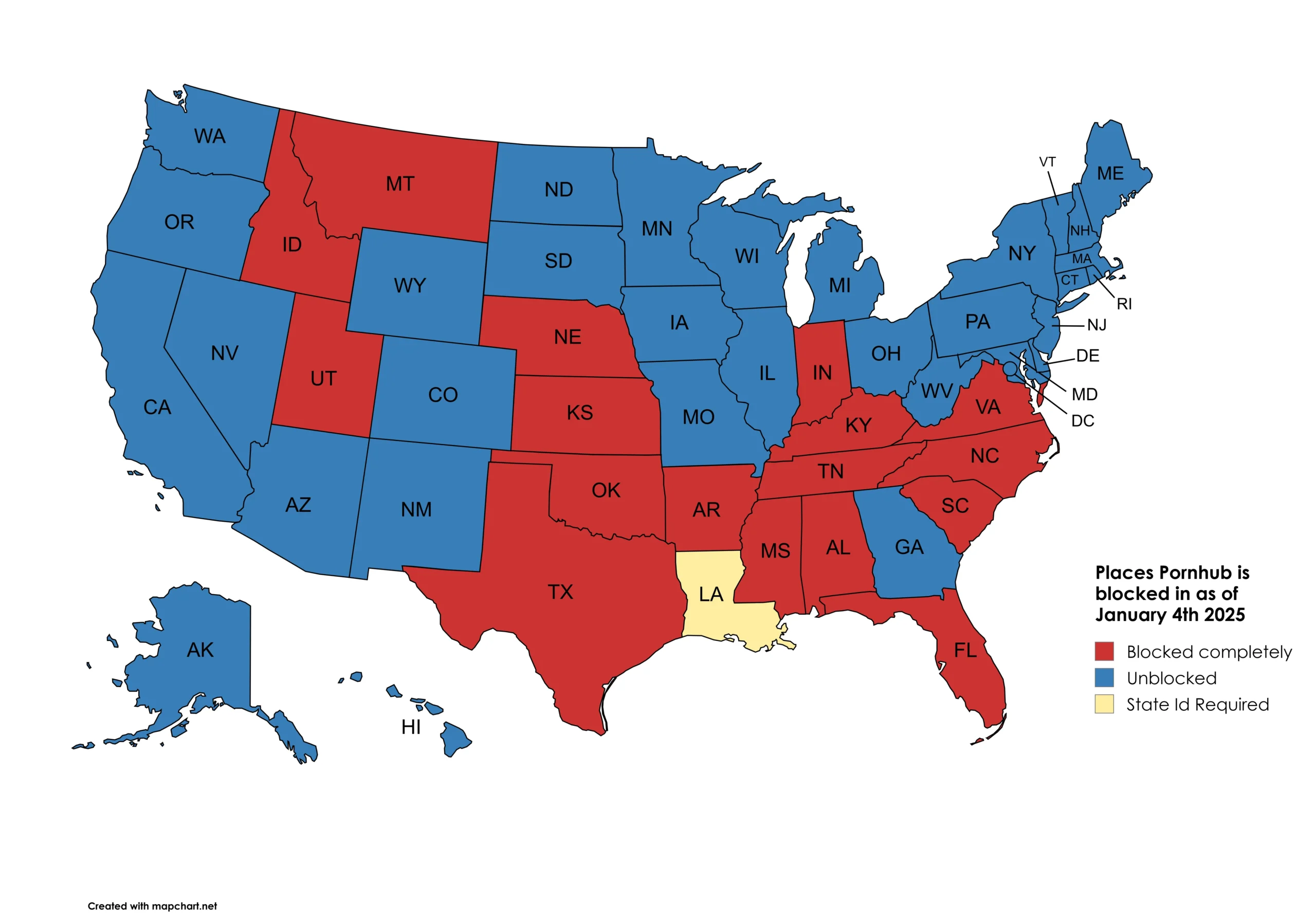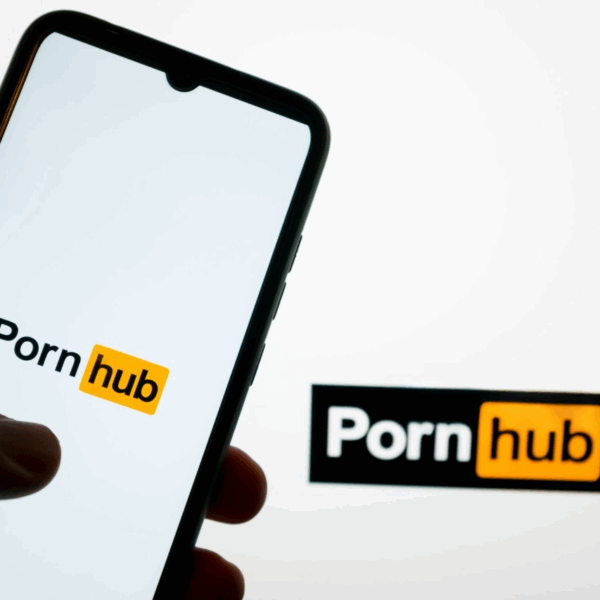Study: Age restrictions on porn sites don’t really work
The most popular complaint about porn sites right now is that they don’t verify users’ ages effectively enough. Authorities in the U.S. and Europe are pushing platforms to improve verification, but a new study shows that it doesn’t make sense.

Analysts from NYU’s Center for Social Media have studied how effective the system is on porn sites in the United States. In 2025, more than 19 states have already restricted access to Pornhub precisely because of the requirement to improve user verification.
The authors analyzed Americans’ requests, statistics of major porn sites and Google Trends analytics. In short, Americans (like any other users) do not indicate their real age when searching for porn, and if a site asks for confirmation, they go to another platform or turn on VPN.
This is the first time Americans have faced widespread restriction from a resource as large as Pornhub. But they haven’t stopped watching porn. For example, in Louisiana, where traffic to the porn site dropped by 80% after the blocking, visits to its European counterpart, xVideos, increased by almost 50%.
Researchers noticed a similar correlation by looking at the queries of Lousiana residents on Google. While the frequency of mentioning Pornhub decreased by 51%, the number of search queries mentioning blocking circumvention increased by 24%.

According to one analyst, users are triggering a “substitution syndrome” where they are willing to switch to an analog instead of submitting to restrictions. As was the case with the rise in popularity of RedNote in the US when TikTok was banned.
At the same time, porn giants do not argue that minors need to be protected. The same Aylo Corporation, which owns Pornhub and Brazzers, criticized the proposed system of age verification through real documents.
Passport verification, Aylo recalled, would link porn preferences to a person’s real data, making the method not look safe. The corporation believes that the best option is restrictions at the device level, like “parental control” and analogs.
So do the authors of the study believe that the authorities need to listen to real users.
“Our analysis shows that such laws do not achieve their stated goals and may also encourage more risky online behavior” the report concluded.

This study again confirms the thesis – people will not watch porn on passport, but rather bypass the ban.
The only thing that will be achieved by such methods – porn will be even more closed, stigmatized and therefore dangerous. But that won’t stop anyone from using it.


